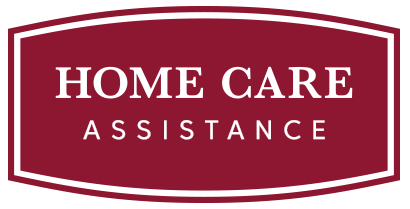6 Ways to Help Older Adults with Alzheimer’s Eat Better

While there’s no cure for Alzheimer’s, studies have shown eating a healthy diet may reduce symptoms and slow the progression of the disease. Many seniors with Alzheimer’s don’t follow a healthy diet, and some may stop eating completely. If your senior loved one has Alzheimer’s disease, here are a few things you can do to get him or her to eat healthier foods more frequently.
1. Be Positive
Taking care of a loved one with Alzheimer’s disease can be frustrating at times, especially when you can’t motivate him or her to eat healthy foods. You need to stay positive and calm during meal and snack times. Berating or yelling at your loved one will add stress to the situation and may result in him or her not eating at all. Stay positive, say good things about the healthy food after you’ve eaten it yourself, and praise your loved one when he or she finishes eating.
If your senior loved one has been diagnosed with a serious condition and needs help with tasks like meal prep, transportation, bathing, and grooming, reach out to Home Care Assistance, a leading provider of in-home care Dallas, TX, families can trust. We also offer comprehensive care for seniors with dementia, Alzheimer’s, and Parkinson’s.
2. Make Mealtime Convenient
One reason seniors with Alzheimer’s disease don’t eat a healthy diet is because they simply don’t have access to nutritious foods. Make sure your loved one has plenty of healthy and convenient snacks on hand at all times. Many seniors with Alzheimer’s have a difficult time using silverware, so nuts, fruits, yogurt, and raw vegetable sticks are great to keep in the fridge or pantry. When your loved one is hungry, he or she can grab a healthy snack without having to worry about chopping or cooking it.
3. Focus on Favorites
If there’s a particular dish your loved one enjoys more than others, don’t be afraid to serve it multiple times a week. Your loved one may never even realize it’s a healthy food if it’s something he or she truly enjoys.
4. Mix Up Some Milkshakes
Many seniors enjoy milkshakes. Try mixing up a tasty milkshake or fruit smoothie when your loved one doesn’t want to eat a normal meal. Add protein powder, vegetables, and other items to ensure the milkshake is packed with nutrients.
Preparing nutritious meals can be a challenging task for family caregivers, especially if they have other tasks to tend to. Though you may be researching multiple agencies that provide senior care, Dallas, TX, Home Care Assistance has much to offer your family and your elderly loved one. We are leaders in the senior home care industry, offering proprietary programs like our holistic Balanced Care Method and around-the-clock assistance from reliable, experienced caregivers. Trust Home Care Assistance to help your loved one enjoy a happier and healthier life in the golden years.
5. Serve Small, Simple Meals
Too many choices often overwhelm a person with Alzheimer’s, which can lead to confusion, frustration, and other reasons not to eat. Instead of fixing two or three big meals, try serving five or six small healthy dishes over the course of the day. Encouraging your loved one to take a few bites of a healthy meal several times a day may be easier than setting a large plate in front of him or her.
6. Stick to a Schedule
Serving meals and snacks at the same time each day may help your loved one eat more healthy foods. Older people typically lose their sense of smell and appetite, and Alzheimer’s disease can make things worse. Memory issues associated with the medical condition can make seniors forget mealtimes. If your loved one eats at the same time each day, it becomes a habit, so he or she may be expecting a healthy vegetable dish every day at 1 p.m. or oatmeal at breakfast.
Alzheimer’s can be challenging for seniors to manage without assistance, and it can be just as challenging for families who don’t have experience in providing Alzheimer’s care. Dallas Home Care Assistance provides Alzheimer’s care seniors and their families can depend on. Our proprietary Cognitive Therapeutics Method was designed to help seniors with Alzheimer’s and other memory-related conditions live happier and healthier lives. If you need compassionate professional home care for your loved one, call one of our friendly Care Managers today at (214) 363-3400.

